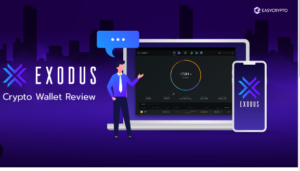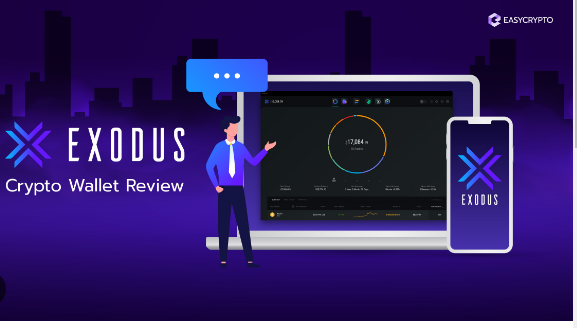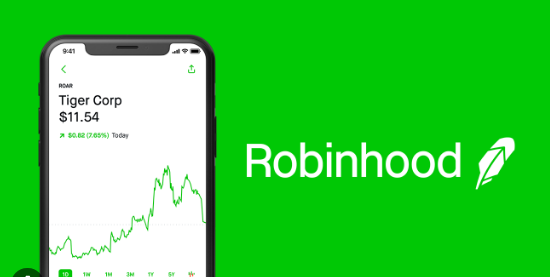
The Exodus wallet has become one of the most popular options for cryptocurrency users over the past few years. With support for over 100 assets, an easy-to-use interface, and enhanced security features, Exodus offers a versatile platform for managing a crypto portfolio.
This in-depth guide will cover everything you need to know about getting started with Exodus, using its various features, and how it compares to other wallets.
Key Takeaways
- Exodus is a desktop and mobile multi-asset wallet that supports 100+ cryptocurrencies.
- It has an intuitive design and simple interface ideal for beginners.
- Users control their own private keys and Exodus never stores them.
- Built-in exchange, portfolio tracker, and staking features offer convenience.
- Advanced security with regular audits and customizable exchange partners.
- Available as a free download for Windows, Mac, Linux, iOS and Android.
Introducing the Exodus Crypto Wallet
Exodus is a multi-asset cryptocurrency wallet that allows users to secure, manage, and exchange over 100 different digital assets in one application. It was founded in 2015 and is one of the most popular and trusted wallets with over 2 million users worldwide.
Some key features that make Exodus stand out include:
- Multi-asset support – Store major coins like Bitcoin, Ethereum, and Dogecoin alongside hundreds of ERC20, BEP2, and other token standards.
- Intuitive interface – Easy to navigate portfolio and coin management with charts, graphs, and other visuals. Great for beginners.
- Non-custodial – Exodus never controls or stores user private keys, giving you full control of your crypto assets.
- Secure – Multiple encryption features and regular security audits by reputable firms like X41 D-Sec.
- Built-in Exchange – Seamlessly swap between supported cryptocurrencies within the Exodus wallet.
- Staking rewards – Earn passive income on applicable proof-of-stake coins like ADA) and ATOM).
- 24/7 customer support – Get prompt answers to any wallet questions with their responsive support team.
Exodus continues to enhance its platform by adding new features and expanding crypto asset coverage. It’s clear why Exodus has become a go-to wallet recommendation for many cryptocurrency enthusiasts.
Downloading and Setting Up Exodus
Since Exodus is a desktop-based wallet, the first step is to visit the official Exodus website and download the appropriate installer for your operating system – Windows, Mac, or Linux.
Mobile apps for iOS and Android are also available but have reduced functionality compared to the desktop wallet.
Once Exodus is installed, follow these steps:
- Open the Exodus application.
- You’ll be prompted to create a new wallet and set a password. This password encrypts your private keys.
- Next, you’ll be shown a 12-word recovery phrase that serves as a backup. Store this securely as it allows you to recover your Exodus wallet if needed.
- Confirm you’ve saved the phrase then click through to the portfolio dashboard.
That’s it! Your Exodus wallet is now ready to use. Be sure to take security precautions like enabling 2FA and keeping recovery phrases safe.
Managing Cryptocurrencies with Exodus
The Exodus wallet makes it simple to perform standard crypto transactions and maintain a diverse portfolio.
Sending and Receiving Crypto
To receive crypto, hover over the “Receive” button on your desired asset page and you’ll be shown your public wallet address to share with the sender.
To send crypto out from Exodus, click “Send” and enter the recipient’s address along with the amount to transfer. Custom “gas” fees can also be set here for ERC20 tokens.
Transactions will show as pending under the activity tab until confirmed on the blockchain.
Exchange Crypto Assets
Exodus offers the ability to exchange cryptocurrencies directly within the wallet interface. Just click “Exchange” and select the desired sending and receiving currencies.
Over 100 exchange pairs are supported and rates are provided by Exodus’s trusted exchange partners. There are no fees but normal network transaction fees apply.
Users can also customize their preferred exchange partners from the settings menu.
Track Portfolio Balances
The main Portfolio page neatly organizes and charts the current value of all assets held within the Exodus wallet. Custom tokens can be added using the “Add Token + ” button.
The overview tab shows the total portfolio value over time while the assets tab lists all coin balances, quantities, and USD values. A favorites section allows pinning selected assets to the top.
This portfolio tracker is ideal for monitoring the overall performance of a cryptocurrency portfolio.
Advanced Exodus Features
Beyond just sending and receiving crypto, Exodus provides useful features that simplify managing digital assets and earning yields.
Staking Cryptocurrencies
Staking allows users to earn passive crypto income by participating in network security. Exodus currently supports staking for 11 different coins including ADA, ATOM, ALGO, and more.
To enable staking, just click on the “Stake” button for any eligible asset. The expected annual percentage yield (APY) for each coin is shown and all staking rewards are compounded automatically.
A minimum balance is required to stake certain assets – for example 1 ATOM for Cosmos. There are no fees for staking via Exodus.
Hardware Wallet Integration
For added security, Exodus allows linking with supported hardware wallets like the Ledger Nano S and X or Trezor One and Model T.
This provides cold storage while still being able to view balances and perform transactions within the Exodus interface. Sensitive operations require confirming via the hardware device.
The steps to integrate a hardware wallet with Exodus are outlined in their support articles. This advanced feature further expands security options for Exodus power users.
Securing the Exodus Crypto Wallet
Maintaining proper security is critical when dealing with cryptocurrency and private keys. Here are some best practices all Exodus users should follow:
- Enable 2FA – For an extra layer of account protection, enable 2-factor authentication via email or Google Authenticator. This is accessed in Settings.
- Control private keys – Unlike exchanges, Exodus gives you full control of your private keys. But with great power comes great responsibility so take precautions in storing recovery phrases.
- Select exchange partners wisely – Only use integrated exchanges you trust. Disable options with higher risks of manipulation or fraud.
- Update firmware and apps – Make sure to keep the Exodus desktop and mobile apps updated for the latest security patches and features.
- Use trusted devices – Only access your Exodus wallet on personal, password-protected, and malware-free devices. Avoid public computers.
- Enable portfolio encryption – Password protect access to your portfolio balances and activity history.
Following security best practices minimizes risks when using the Exodus wallet or any cryptocurrency software. As the saying goes, be your own bank.
How Exodus Compares to Other Crypto Wallets
With so many cryptocurrency wallets available, it helps to see how Exodus stacks up to popular alternatives:
| Wallet | Pros | Cons |
|---|---|---|
| Exodus | Wide multi-asset support, easy to use, built-in exchange, staking/yields, 24/7 support. | Advanced users may want more options and control. Only desktop + mobile. |
| MetaMask | Top Ethereum wallet, browser extension, suits DeFi users. | ETH and tokens only. More hands-on security required. |
| Coinbase Wallet | Simple interface, integrates with Coinbase exchange, mobile app. | Closed source code, limited assets, average reviews. |
| Ledger | Very secure hardware wallet, supports many assets. | Can be costly, not ideal for active trading. |
Ultimately there is no “one size fits all” crypto wallet. Needs of each user are different based on their holdings, activities, and technical abilities. Exodus hits a nice balance offering solid security with an accessible interface.
Supported Cryptocurrencies
A key advantage of Exodus is support for a wide variety of crypto assets – over 100 at the latest count. This makes it easy to consolidate multiple currencies within a single user-friendly wallet.
Some of the major cryptocurrencies supported include:
- Bitcoin (BTC) – The first and largest cryptocurrency by market cap.
- Ethereum (ETH) – Second largest crypto, Needed for interacting with ERC20 tokens.
- Cardano (ADA) – Smart contract platform with staking rewards.
- Solana (SOL) – Fast and scalable blockchain network.
- Polkadot (DOT) – Connects public and private blockchains.
- Dogecoin (DOGE) – Meme-based crypto with a familiar dog logo.
In addition, popular stablecoins like USDC, USDT, DAI, and others are supported. These maintain pegged values to fiat currency.
Exodus also enables easy access to hundreds of lesser-known ERC20 and BEP2 tokens. Rather than managing each individually, they can be stored together under one Exodus wallet.
Adding Custom Tokens
If an ERC20, BEP2 or certain other standard token isn’t natively recognized by Exodus, the “Add Token +” feature allows manually adding custom assets.
To add a custom token:
- Go to the “Add Token +” page under the portfolio tab.
- Enter the token contract address. This identifies it on the blockchain.
- Custom details like symbol, decimals, and name can also be entered.
- Click “Add Token” once finished.
The new token will now appear alongside other Exodus assets. Just make sure to verify the contract address to avoid adding scam tokens.
Exodus maintains a lengthy knowledge base article explaining this process and common token standards in more detail.
Customer Support and Reviews
With over 2 million global users, Exodus maintains an average 4+ star rating across thousands of reviews on platforms like Trustpilot, Google Play, and the App Store.
Positive feedback frequently cites the intuitive interface, top-notch customer service, and overall ease of use compared to other cryptocurrency wallets. Users also like the quick response times and effectiveness of Exodus support.
Of course no product or service is perfect. Some users have reported bugs or slow speeds, especially on the mobile apps. Increased transparency around security audits would also provide peace of mind. But the Exodus team is quite responsive to user feedback.
On the whole though, Exodus delivers very positive experiences for the vast majority of reviewers. Don’t just take our word for it – see for yourself at the links below:
Conclusion – Should You Use the Exodus Wallet?
For cryptocurrency newcomers, Exodus provides a great starting point to begin building a portfolio of coins and tokens while learning the ropes of crypto storage and transactions.
The intuitive design, stellar user support, and diverse multi-asset capabilities offer big advantages for first-time users focused on the most prominent digital assets.
As users grow into more advanced crypto activities like decentralized finance (DeFi) or non-fungible tokens (NFTs), other niche wallet tools like Metamask tend to provide more customization. But for general purposes, Exodus remains one of the top recommendations for beginner to moderately experienced cryptocurrency enthusiasts.
Give the free Exodus wallet a try and see for yourself why it’s earned such loyal user support over the past 7+ years and continues updating with new features. Just be sure to take security seriously and enable all available protections.
Happy hodling!






